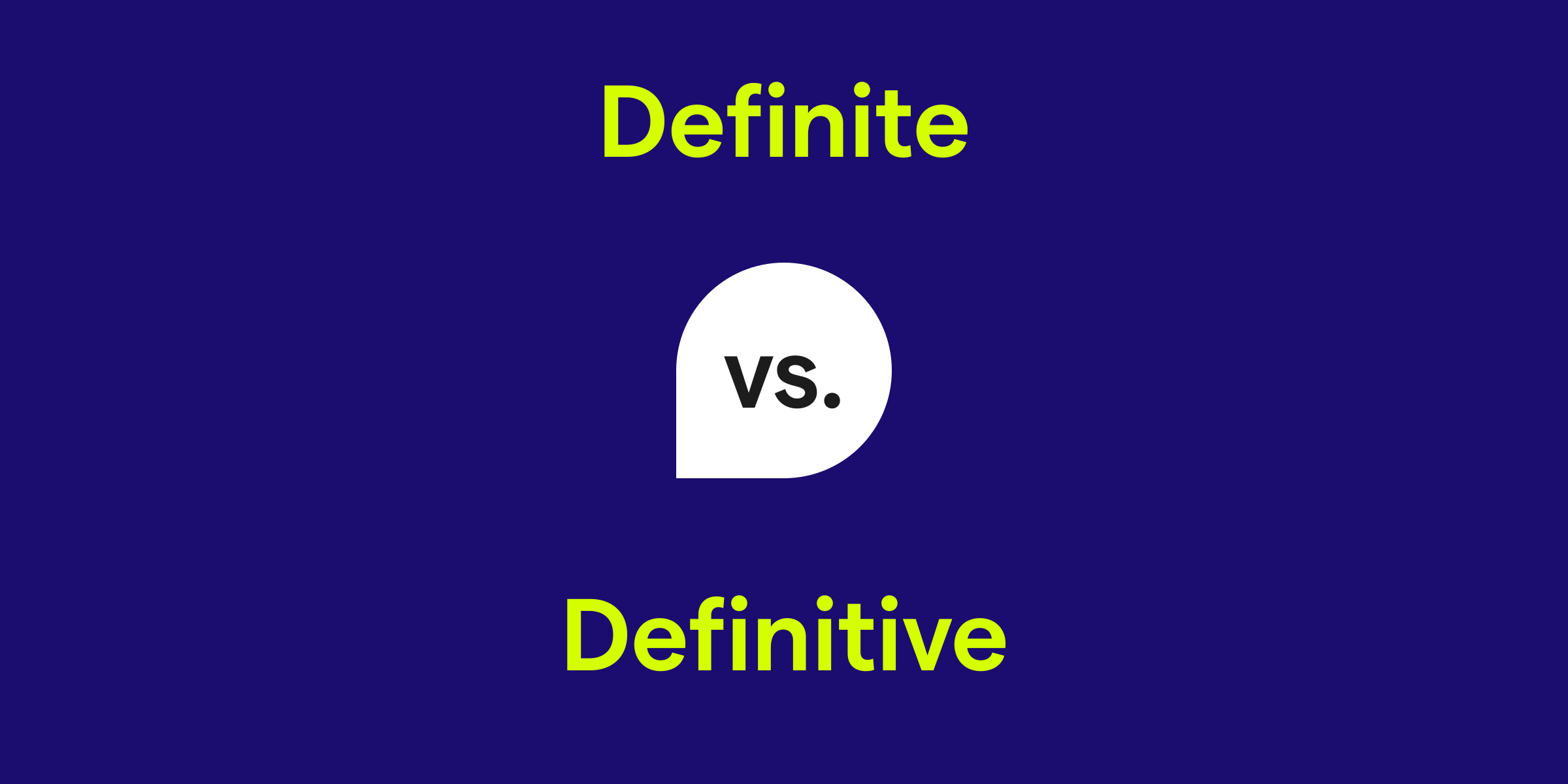Definite vs. Definitive: What's the Difference?
Definite and definitive both relate to clarity and precision, but they serve different grammatical purposes. Definite describes something that is clear, certain, and well-defined, such as a specific time or answer. Definitive, on the other hand, conveys a sense of finality and conclusiveness, typically used to describe an authoritative or comprehensive work or solution that sets a standard.

How do you use the word definite in a sentence?
The word definite is used when referring to something specific, unambiguous, or agreed upon with certainty. It helps to indicate clarity and leaves no room for doubt about the nature, time, place, or identity of the subject in question.
Examples of definite in a sentence
- We have set a definite date for the wedding.
- The evidence provided a definite answer to the mystery.
- She was definite about not attending the party next week.
How do you use the word definitive in a sentence?
Definitive is often used to describe something that is considered to be the most authoritative or conclusive in its field. It suggests an ultimate, unrivaled status that leaves little to no scope for further debate or challenge.
Examples of definitive in a sentence
- Her biography is considered the definitive work on the president's life.
- The Supreme Court's decision was seen as definitive on the matter.
- The experiment provided definitive proof of the new theory.
Definite and definitive definition, parts of speech, and pronunciation
Definite definition:
Definite (adjective): clearly stated or decided; not vague or doubtful.
Definite parts of speech:
Definite pronunciation:
The word 'definite' is pronounced as /ˈdɛfɪnɪt/, with emphasis on the first syllable.
Definitive definition:
Definitive (adjective): of a conclusive nature; providing a final solution or end to a situation.
Definitive parts of speech:
Definitive pronunciation:
The word 'definitive' is pronounced as /dɪˈfɪnɪtɪv/, stressing the second syllable.
Definite (adjective): clearly stated or decided; not vague or doubtful.
Definite parts of speech:
- As an adjective, 'The results are definite' indicates clarity and certainty in the outcome mentioned.
Definite pronunciation:
The word 'definite' is pronounced as /ˈdɛfɪnɪt/, with emphasis on the first syllable.
Definitive definition:
Definitive (adjective): of a conclusive nature; providing a final solution or end to a situation.
Definitive parts of speech:
- As an adjective, 'This is the definitive guide on the subject' implies that the guide is the most comprehensive and authoritative source available.
Definitive pronunciation:
The word 'definitive' is pronounced as /dɪˈfɪnɪtɪv/, stressing the second syllable.
Definite vs. definitive in a nutshell
While both definite and definitive express aspects of certainty, they are distinct in their usage. Definite refers to something precise and clear, often with a concrete decision or timeframe. In contrast, definitive implies an authoritative or exhaustive quality that provides an ending or resolution that is unlikely to change. Understanding the nuances of these words enhances our expression and the precision of communication.
Get AI Writing Assistance Wherever You Type
Make sure your vocabulary is on point and every punctuation mark is in the right place, no matter where you’re working. Grammarly works across more than 1 million websites and apps so you can improve your writing without copying, pasting, or breaking focus.

More Commonly Confused Words
Interest piqued? Pore (not pour) over other commonly confused words to help your writing reach peak (not peek) performance.